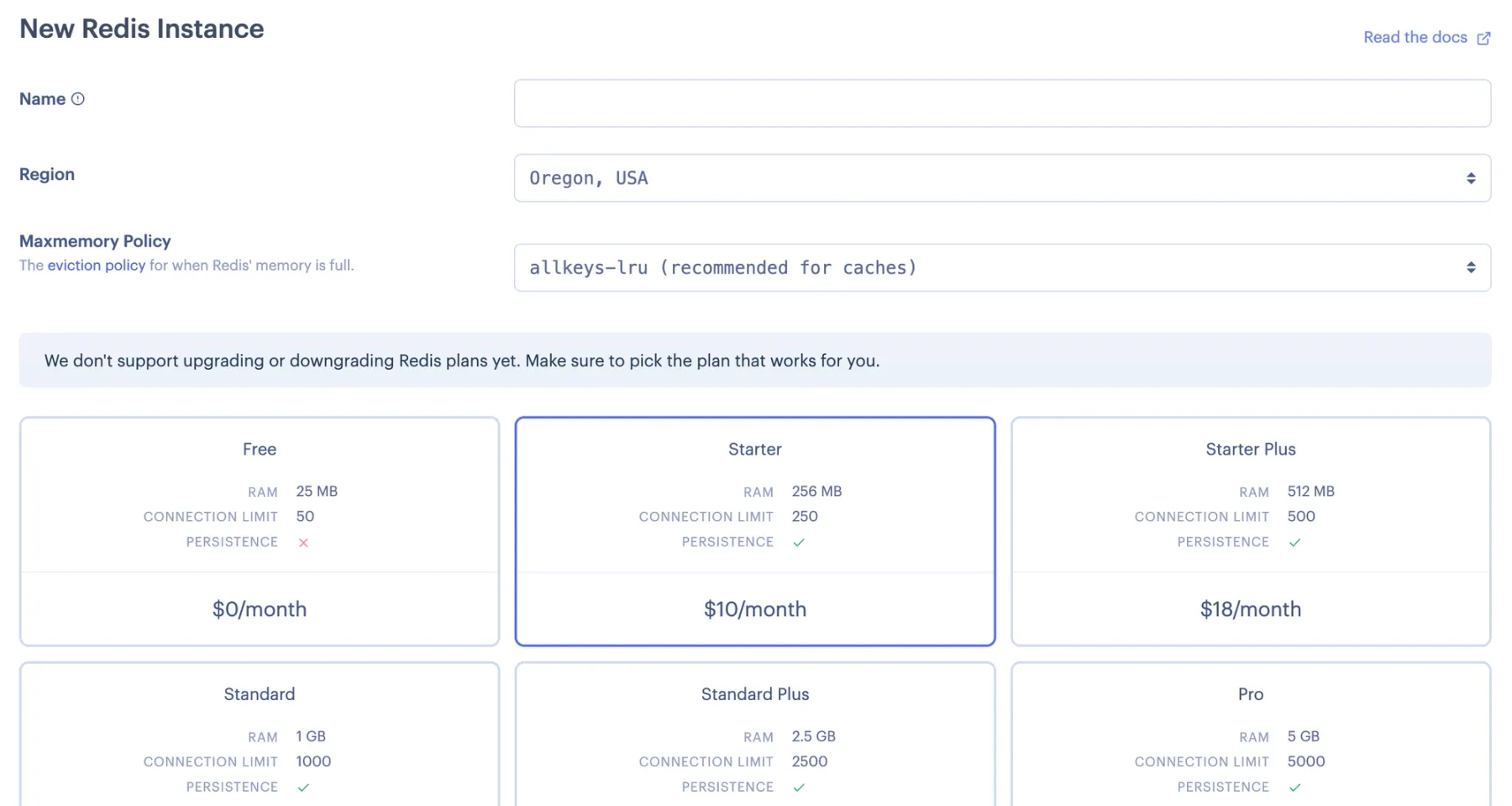Today, we're announcing the General Availability of Render Redis. You can now set up a Redis instance in just a few clicks and let Render handle the heavy lifting to operate it reliably and securely. Redis, a widely-used, open source, in-memory key-value store, supports high throughput and low latency reads and writes. This makes it a great fit for uses like caching and queueing.
To get started, create a Redis instance directly from your Render account, or read more in our docs. Try our Redis for free, and when you're ready, select a paid instance type starting at $10/month to get more RAM and data persistence.

Why we're offering Redis
Prior to this release, if you wanted to run Redis, you needed to set up, configure, and operate Redis yourself using a Render Private Service, taking engineering time away from your core business. Because of this, Redis has been the number one upvoted product requested by Render users. With our Redis service, getting a running instance is simple, and from there, Render takes care of reliability, security, and operations. Render’s Redis also offers our most-requested features out-of-the-box, including:
- A URL for connecting to Redis from outside Render
- Access to the Redis CLI
- Blueprint support so Redis works seamlessly with Render’s infrastructure-as-code
- A Redis metrics dashboard showing memory usage, CPU load, and active connections
- Configurable eviction policy to support caching, queueing, and other use cases
And this is just the beginning - we'll continue to add features and make improvements.
What Redis enables for Render users
Already, through our Early Access period, hundreds of Render users have found Redis a convenient way to take on a variety of tasks, from caching user sessions, full pages, and template fragments to running background jobs like parsing large data files or sending e-mails. Early Access Redis users have particularly appreciated the easy setup — a new Redis instance can be created in a couple of clicks, and is instantly ready for internal and external connections — while maintaining the flexibility they needed.
"I was very pleasantly surprised by how easy the process was. I followed the instructions to deploy a Redis instance and connect it to Rails and everything worked right away," said Benjamin Houy, Founder of French Together, who is using Render’s Redis with the Sidekiq framework for Ruby. Another Render user, prolific indie builder Marc Köhlbrugge, shared, "Having hosted Redis instances on Render is yet another thing I no longer need to worry about. Having dedicated configs for different use cases like caching takes out the guess work and lets me focus on building my app rather than having to learn another infrastructure service."
Early Access users have also appreciated the hands-off operation so they can focus on growing their businesses.
Our product allows businesses to launch an eCommerce marketplace quickly. A key feature of vendo is supplier onboarding where we make extensive use of background queues on Redis to pull product data from various sources and normalize it. We then use another queue to push that data to other tools to make it easily searchable and downloadable. Building on Render’s managed Redis has allowed us to focus on our product roadmap. Setting it up was a breeze, and it has a big impact on scaling of our product.
Other Early Access users created Render Redis instances to manage rate limits for third-party API requests, queue expensive tasks in the background and remove them from the request flow, and cache data from their CMS to make their sites faster.
Getting started
For users who want to use Redis for queueing, check out our guides for processing requests using the Ruby Sidekiq framework and using the Python Celery library. For other use cases, you can learn more in our docs and create a Redis instance to get started.